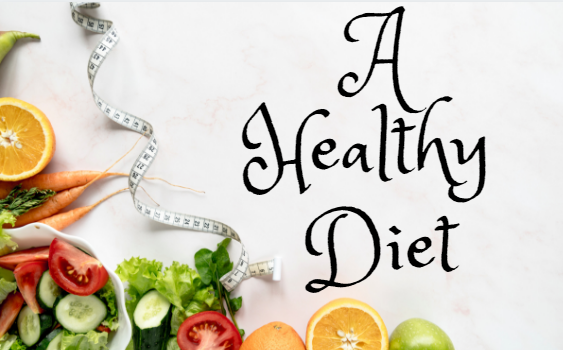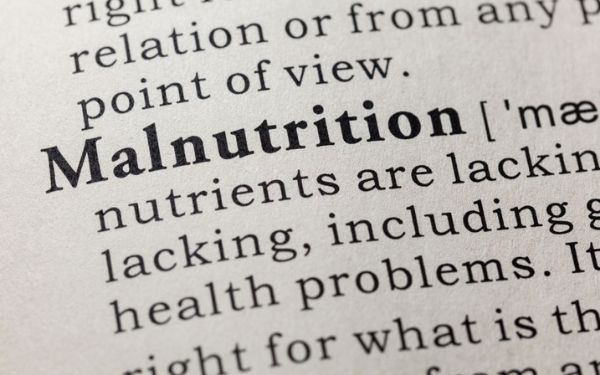What is a Balanced Diet?
A balanced diet gives the body the nutrients it needs for proper functioning. When we speak about a balanced diet it implies selecting a range of foods from various food groups – specifically: vegetables and fruits; protein (meat, fish, eggs, beans, soy); dairy (low-fat milk, cheese, yogurt); carbohydrates (starchy foods such as rice, pasta, potatoes, and bread – preferably wholegrain or whole-wheat varieties); and a small number of good fats such as unsaturated fat from olive oil. Avoid sugary beverages and foods, as well as foods with added saturated fat such as processed meat, chips, pastries, and pies. Drink plenty of water to keep the body hydrated and make it work better.
Why a balanced diet is important?
A healthy diet contains the nutrients that your body requires to be functioning efficiently. Your body is more prone to disease, infection, fatigue, and low performance without balanced nutrition.
Children who don’t get enough healthy food can face problems with growth and development, poor academic performance, and frequent infections.
According to the Center for Science in the Public Interest 4 of America’s top 10 leading causes of death are specifically related to diet.
Such as:
- Heart disease
- Tumor
- Stroke
The importance of Nutrition and Healthy Diet
Having a nutritionally balanced diet is important to a healthy lifestyle. Furthermore, a well-balanced diet can boost your immunity, promote healthy development, support a healthy weight, and help prevent chronic diseases such as obesity or diabetes. With a little planning and preparation eating a balanced diet is simple and will provide you with the foundations for a safe and happy life.
Understanding a balanced Diet
Eat food from all five main food groups
One of the most important components of a well-balanced diet is to most days eating food from all five food groups. Each group of foods offers your body a variety of vitamins, minerals, and other vital nutrients for your health. Make sure to include foods from these groups: protein, dairy, grain, fruit, vegetables, etc.
Eat calories in the right amount
Besides consuming a wide variety of foods and ensuring you consume all the nutrients prescribed, you can also control how many calories you eat per day.
- In general, the majority of women need about 2,000 calories per day and the men need about 2500 calories per day. This varies according to your age, gender, level of activity, and overall health.
- Where weight gain or weight loss is desired, an adequate amount of calories should still be eaten. Both very high and very low levels of calories can cause health problems.
Write down a meal schedule
It could be helpful to write a meal plan for yourself to help you prepare your well-balanced diet.
After a few days or a week of writing your plans, go back through and make sure you have included a range of foods from within the food categories. If you note the lack of a few days, go back and make changes where appropriate.
Maintain a balanced diet
Eat lean protein
Protein is an essential nutrient you need in relatively large quantities. It will help you achieve your daily goals by providing a source of protein at every meal and snack.
Protein can be found in a wide range of foods, including poultry, beef, pork, legumes, eggs, milk products, and tofu or soy.
Eat a variety of fruits and vegetables
These foods are rich in vitamins, minerals, and fiber. They are also a great source of antioxidants that improve immunity, which you can’t get from other foods.
Choose a different colored fruit or vegetable each day to get a range of antioxidants. As different colored fruits have different vitamins, this will help increase your variety.
Take supplements
Sometimes all food groups or a wide variety of foods may not be eaten. This can be due to allergies to foods, food sensitivities, or chronic diseases. In this situation, consuming adequate amounts of all the essential nutrients through other sources such as vitamin and mineral supplements is still important. Try to get as many nutrients as possible from your diet, and use supplements only if needed.
Taking supplements can help you achieve your daily nutrient targets. You may want to consider taking a multivitamin, calcium (especially if you have an allergy to milk or are intolerant to lactose), fish oil (if you have an allergy to seafood or don’t eat fish), or vitamin D (which is hard to get from food but can be obtained from the sun).
Here are the Basic Guidelines for Healthy Eating
- The most important balanced eating rule is not to miss meals. Skipping meals will reduce your metabolism. Normal eating includes three main meals and two mealtime snacks. Never skip breakfast, either. It’s the day’s principal critical meal.
- Drink huge quantities of water. Keep a bottle of water close to you while you’re working, watching TV, etc.
- Limit the stimulants such as alcohol, caffeine, and refined sugar.
Do You Know About The Magical Tea? — Read More















0 Comments